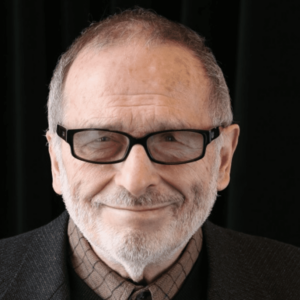The Queen’s funeral is just behind us. It is still too early for any deep debate on the long journey ahead to a Canadian republic.
The Globe and Mail editorial board has nonetheless already opined that “Canada is stuck with the monarchy. We should thank our lucky stars for that.”
Some who for excellent patriotic, democratic, multicultural, and even economic reasons altogether disagree with this sentiment may already have their own thoughts.
Those who share the Globe and Mail’s opinion, for instance, often profess scepticism about related opinion polls. Canadian politicians themselves have so far largely ignored the growing evidence of Canadian “republicanism” or “anti-monarchism” in the polls of the past few decades.
Yet very soon after the Queen’s unhappy death our federal and provincial leaders were proclaiming Charles III the new King of Canada. And as this happened some voters may have remembered two recent surveys by the Vancouver-based Angus Reid Institute.
Both polls suggested that a two-thirds majority of Canadians (66%-67%) “oppose recognizing … Prince Charles as King and Canada’s official head of state.”
Polls on the monarchy in Canada can depend a lot on the exact questions asked. A very recent Leger poll taken just after the Queen’s death asked whether respondents “thought the accession of King Charles to the throne was good or bad news.” In this case 15% said good, 16% said bad, and 61% were “indifferent.”
The Leger and two Angus Reid polls do point in similar broad directions for Canada. Leger found that a three-quarters majority (77%) “felt no attachment to the British monarchy.”
Another very recent poll from Pollara Strategic Insights reported that: “Only one third of Canadians believe the country should remain a constitutional monarchy.”
The second Angus Reid poll, published April 21, 2022, was headlined “The Queen at 96: Canadians support growing monarchy abolition movement, would pursue after Elizabeth II dies.”
The Leger poll points this way as well. But its questions also elicit a parallel note of apathy on the issue, which has its own history and logic.
Early reactions to Queen Elizabeth II’s unhappy passing were similarly nuanced. The online blogTO in Toronto reported that “People think Canada should … become a republic.”
The left-wing rabble.ca concluded: “Fully abolishing the monarchy would be a tall order and would require amending Canada’s Constitution, getting the provinces on board, and likely settling other Constitution issues, such as the status of Quebec.”
Whatever else, none of this means that the Canadian people are “stuck with the monarchy.”
Getting the legislatures of all 10 provinces on board will be challenging, especially when it almost certainly means settling a few other nagging constitutional issues at the same time.
In the end, however, such things must finally depend on what the great majority of the Canadian people want. That is a key part of the “free and democratic society” noted at the start of the Constitution Act, 1982, which finally “patriated” Canada’s Constitution from the United Kingdom.
Growing popular support for an end to the monarchy in Canada in the new age of King Charles III could ultimately be the driving force behind an at last successful cut at the still haunting constitutional issues that eluded the failed Meech Lake and Charlottetown accords 30 years ago.
And this could help build a stronger Canada for the global storms ahead.
On closer examination, abolishing the monarchy in a parliamentary democracy like we have in Canada today, while politically awkward in several respects, is not difficult in principle or unprecedented in practice. It has already been pioneered by our fellow former British dominions in Ireland and India.
Very quickly, there is an important enough practical role for a head of state (monarch) separate from the head of government (prime minister) in our kind of parliamentary democracy.
But in Canada this role is now played by the governor general — in theory a representative of the British monarch, but in practice a Canadian appointed by the Canadian prime minister since the early 1950s.
All we have to do to politely wave goodbye to the monarchy is change our official head of state from the British monarch to the Canadian governor general (under whatever new name and selection method … or not??).
It will take a long journey to politically dot all the “i”s and cross all the “t”s in even such a common-sense process. But if this is what the great majority of the Canadian people who vote in elections finally want (in our less indifferent moments), it is not a difficult thing to do.
And if we are even half as democratic as we like to imagine, our free and democratic society in the Constitution Act, 1982 is almost certainly bound to finally arrive at a Canadian republic, even at some point not too much further down the road.







